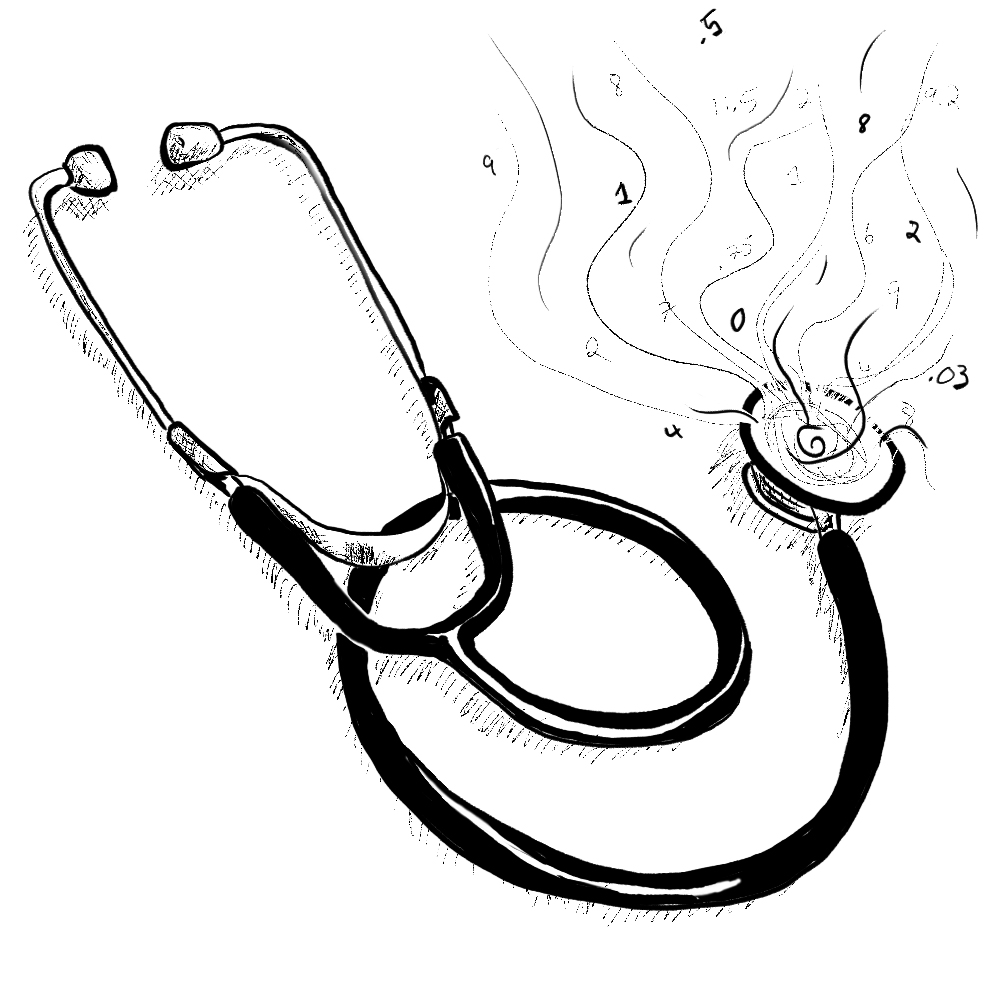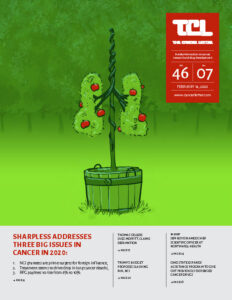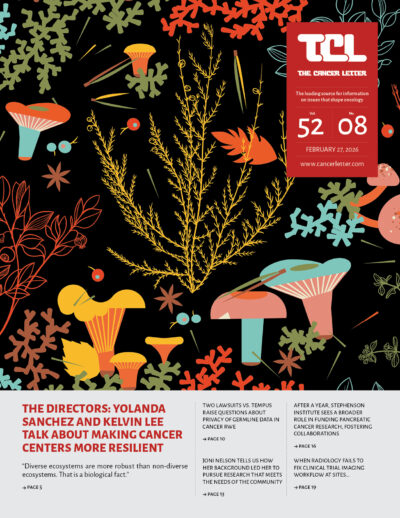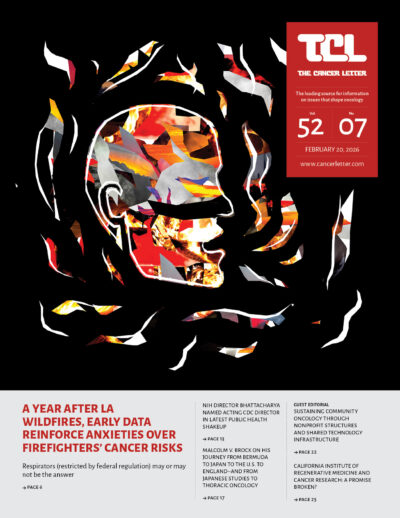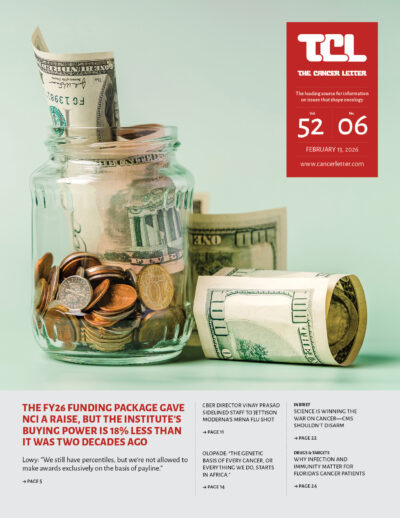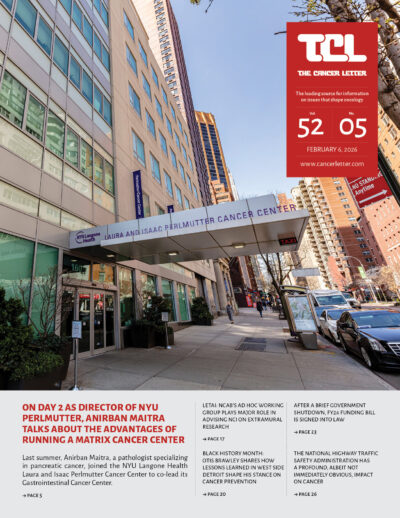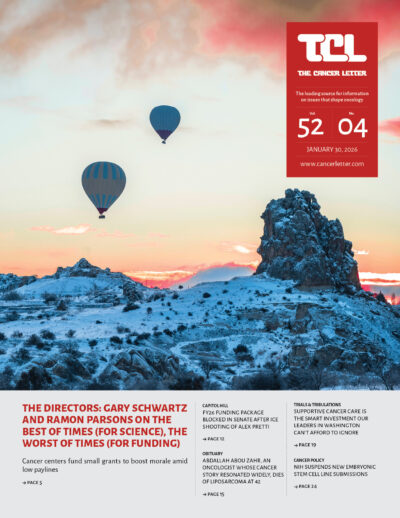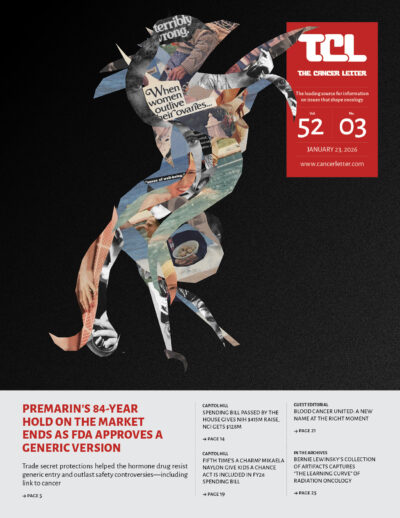

Cover Story
FreeGuest Editorial
When the Lung-MAP trial was launched in June 2014, the goal was simple: Make drug development faster and more collaborative—and do it for lung cancer, the leading cause of cancer death in the United States.This is a formidable challenge. Cancer trials were, and remain, notoriously time-consuming to launch, expensive to run, and difficult to enroll patients to. A deeper understanding of cancer biology and the genomics revolution in medicine have changed how we approach clinical research.When the Lung-MAP trial was launched in June 2014, the goal was simple: Make drug development faster and more collaborative—and do it for lung cancer, the leading cause of cancer death in the United States.
In Brief
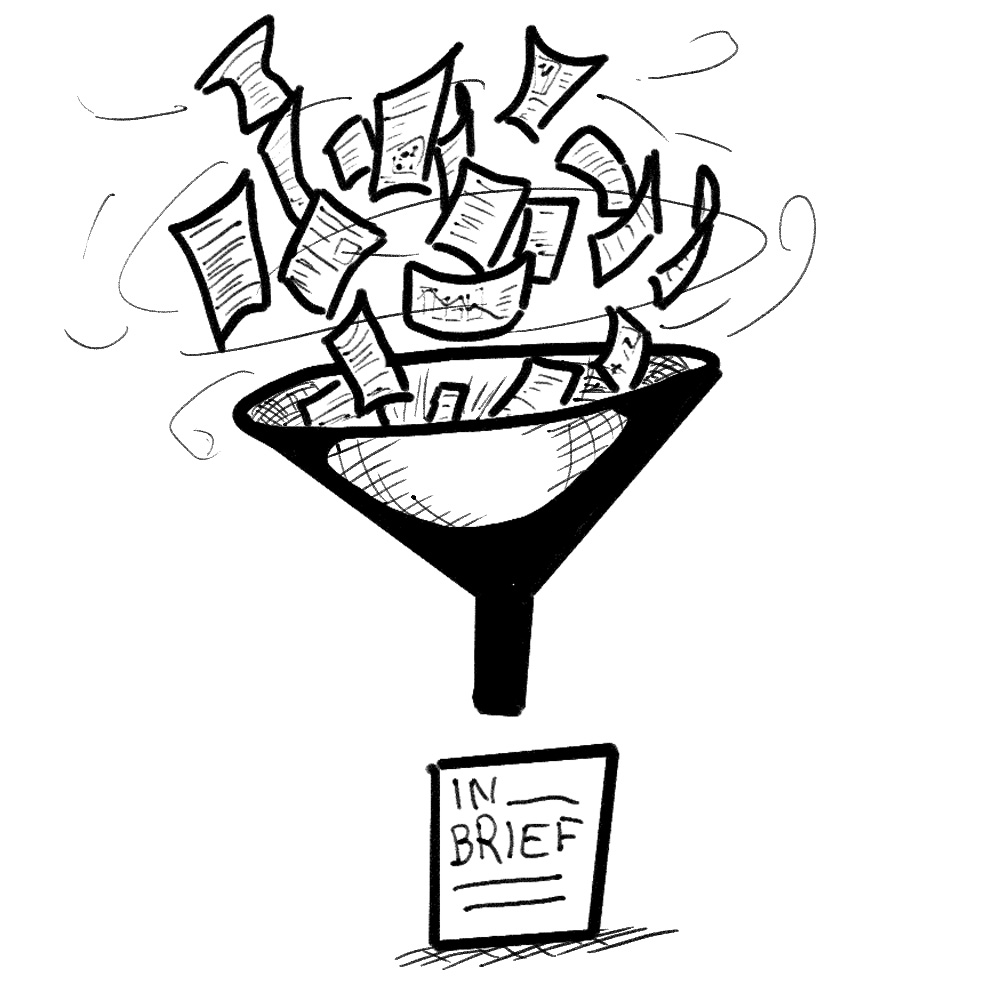

Funding Opportunities
Clinical Roundup
Drugs & Targets
Trending Stories
- Two lawsuits vs. Tempus raise questions about privacy of germline data in cancer RWE
“Deidentified” ≠ “deidentifiable” - Lawsuits brought against Tempus AI raise more questions than answers about DNA privacy in the AI era
- Mail-out colorectal cancer screening programs extend, rather than replace, clinical care
- Lou Weiner to step down as director of Georgetown’s Lombardi CCC after 18 years
- After a year, Stephenson institute sees a broader role in funding pancreatic cancer research, fostering collaborations
“We are not just funding research. We are building a trusted community.” - Trump administration announces “major crackdown” on healthcare fraud







